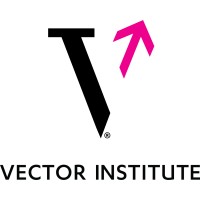Top Qs
Timeline
Chat
Perspective
Vector Institute (Canada)
Research institute in Toronto, Canada From Wikipedia, the free encyclopedia
Remove ads
The Vector Institute is a private, non-profit artificial intelligence research institute in Toronto focusing primarily on machine learning and deep learning research. As of 2023, it consists of 143 faculty members and affiliates — 38 of whom are CIFAR AI chairs — 57 postdoctoral fellows, and 502 students.[2] Along with the University of Toronto, the Vector Institute is affiliated with faculty from universities across Ontario, as well as British Columbia and Nova Scotia.[2]
Along with Montreal's Mila and Alberta's Amii, the Vector Institute is a member of the Pan-Canadian Artificial Intelligence Strategy.[3]
Remove ads
History
Vector was established by Brendan Frey, Geoffrey Hinton, Raquel Urtasun in 2017[4] with the objectives of retaining and recruiting researchers in Toronto and encouraging companies to establish labs in the city.[5]
On January 2, 2018, Garth Gibson became Vector's first president and CEO,[6] and in 2023, was replaced by Tony Gaffney.[7][8] The institute was housed in the MaRS Discovery District[9] and, in 2024, moved to the Schwartz Reisman Innovation Center.[10]
Remove ads
Funding
At the end of its founding, the Vector Institute received a combined total of $200 million CAD from private and public sectors.[11] The sources of its private sector funding include, among others, Uber,[12] Google,[13] and Shopify.[14] In 2019, the Government of Ontario cut its funding of CIFAR and the Vector Institute by $24 million CAD.[15] As part of the Pan-Canadian Artificial Intelligence strategy, the Vector Institute, Mila, and Amii received another $60 million CAD in 2021 from the Government of Canada.[16]
Remove ads
Operations
The institute supports foundational and applied AI research,[1] and mitigates brain drain in Canada.[17] Their research priorities are:[1]
One of the goals of the institute is to support AI adoption in industries. They have helped reduce energy consumption at Telus,[18] built recommendation systems with Wahi,[19] and partnered with Kids Help Phone to build tools that help guide councillors during conversations with children.[20] They have built open source tools to monitor clinical models in production.[21]
The institute has given out $2 million CAD in masters scholarships, valued at $17,500 each.[22]
Faculty
As of June 2024, Vector's research is led by Chief Scientific Advisor Geoffrey Hinton and Research Director Daniel Roy.[23] Other faculty members include, among many others, Alán Aspuru-Guzik, Sanja Fidler, Brendan Frey, Gillian Hadfield, Sheila McIlraith, Raquel Urtasun, and Richard Zemel.[23]
Board of Directors
As of March 31, 2023, the Vector Institute's board of directors consists of:[2]
- Ed Clark
- Miyo Yamashita
- Charmaine Dean
- Janet Ecker
- Chaviva Hosek
- Ashley Casovan
- Michael Serbinis
- Melissa Chee
- Melanie Woodin
- Shauneen Bruder
References
Wikiwand - on
Seamless Wikipedia browsing. On steroids.
Remove ads

